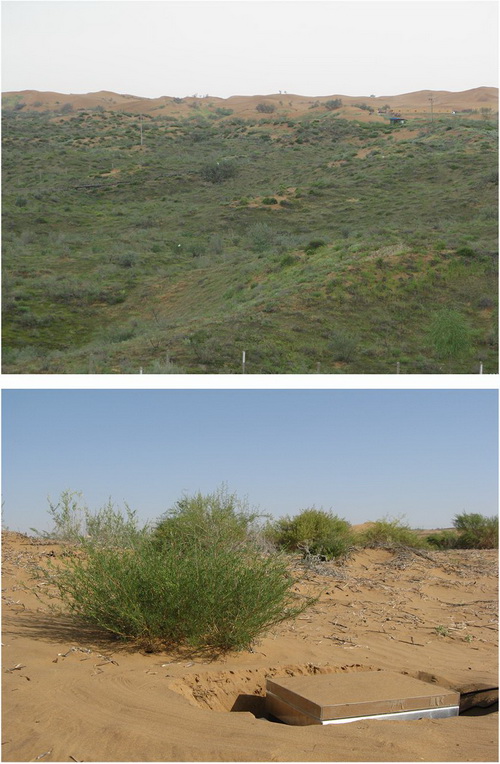Shapotou area, which is situated at southeast edge of the Tengger Desert, belongs to steppe desert zone. The mean annual rainfall of this area is only 182.6 mm, of which 82% falls in the rainy season.
It is well-known that the rainfall decides the vegetation biomass and soil moisture in arid and semiarid ecosystems. Therefore, in order to improve the local eco-environment in Shapotou area, scientists develop a probabilistic model to predict dynamics of vegetation biomass in a desert ecosystem in northwest China, thus providing a tool to forecast the changes to be expected in biomass for arid and semiarid ecosystems under climate change conditions.
Recently, a research group headed by Prof. WANG Xinping from Shapotou Desert Research and Experiment Station, Northwest Institute of Eco-Environment and Resources of Chinese Academy of Sciences together with the coauthors from United States, has tested a recently developed analytical scheme for the description of the leaf biomass dynamics undergoing seasonal cycles with different rainfall characteristics.
Based on long-term field observations in Shapotou Desert Research and Experiment Station, the researchers concluded that the vegetation biomass can be quantified by their analytically derived time-dependent probability distribution, and the research results also indicate that the impact of climate change scenarios on vegetation cover and plant water resource competition.
The results have been published in the journal PNAS in an article entitled “Probabilistic model predicts dynamics of vegetation biomass in a desert ecosystem in NW China.”
This work was funded by the National Natural Science Foundation of China (Grants 41530750 and 41371105), the National Science Foundation (Grant 1514606, “Mathematical Methods for Water Problems”), and the Texas Experimental Engineering Station of Texas A&M University.
Contact
WANG Xinping
E-mail: xpwang@lzb.ac.cn
Shapotou Desert Research and Experiment Station, Northwest Institute of Eco-Environment and Resources, Chinese Academy of Sciences, Lanzhou, Gansu 730000, China.

(Top) An overview of the site and its vegetation. (Bottom) The shrub A. ordosica, which is the dominant vegetation type. (Image by WANG Xinping)

